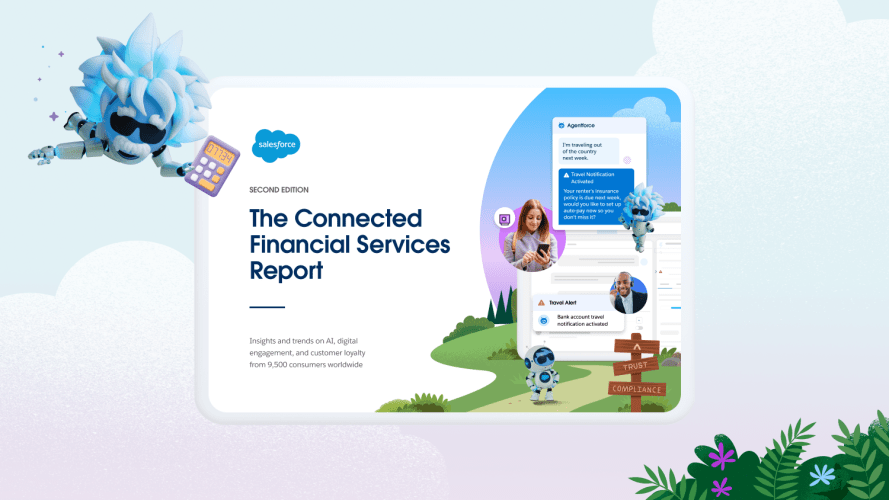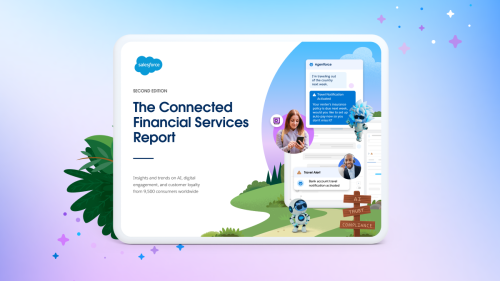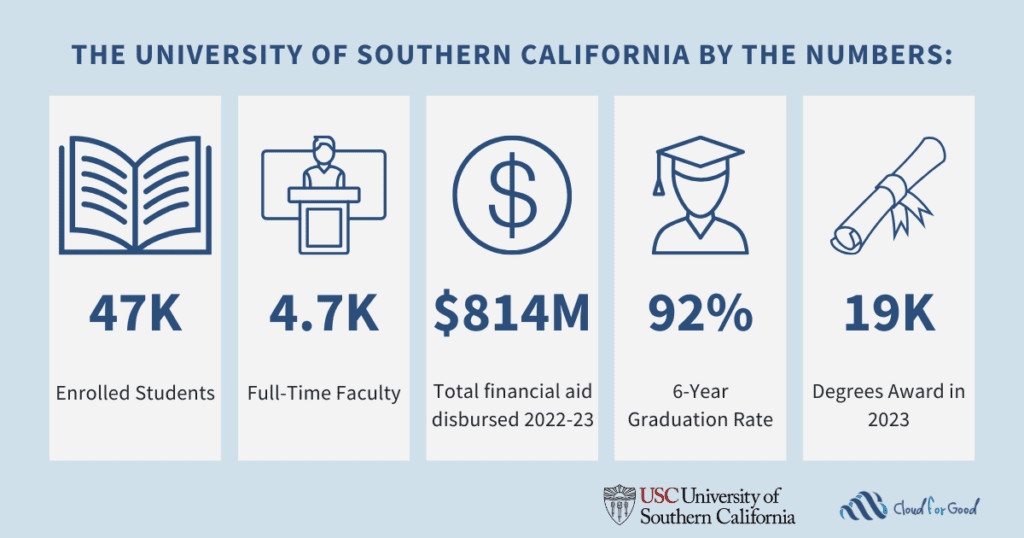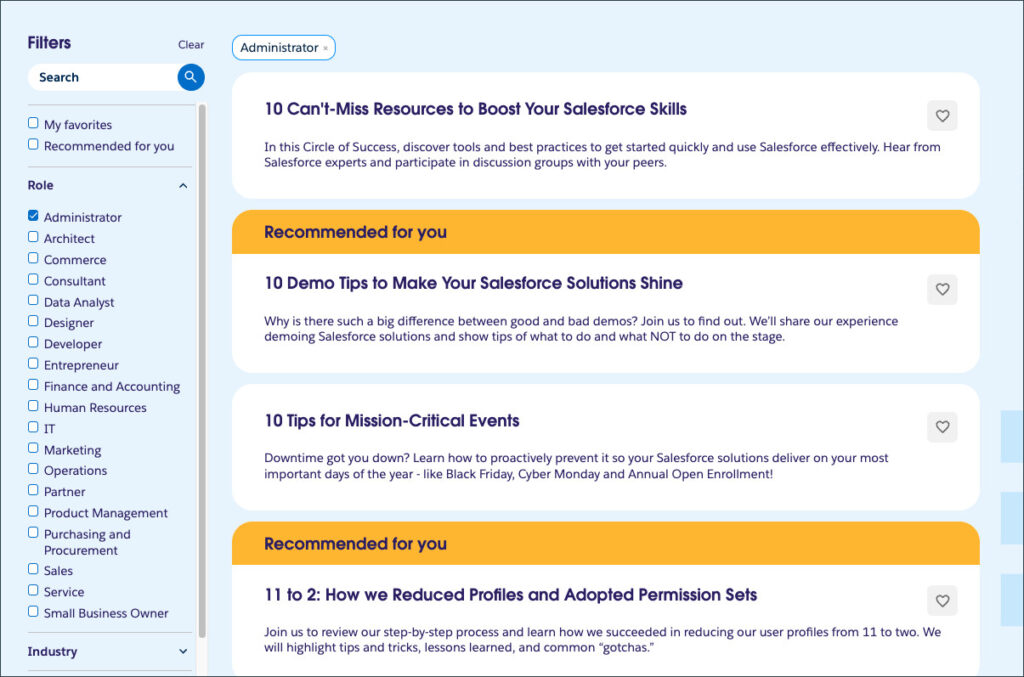CIOs in the financial services industry play a crucial role in driving technology advancements at their institutions, from enhancing productivity to boosting top-line growth and reducing costs. We’ve also seen IT leaders playing key roles in boardrooms, at global summits like Davos and the G20, and at the forefront of AI development, particularly in the realm of agentic AI. Their expertise is essential for navigating the complexities of AI integration and ensuring that these technologies deliver meaningful business outcomes.
The latest Salesforce State of IT report shows a significant majority of financial services IT professionals recognize the importance of combining human and AI capabilities. Specifically, 41% strongly agree and 46% agree that this combination is key to building a competitive advantage for financial services institutions (FSIs).
Because of this, financial services IT organizations are optimistic about the future. A staggering 85% anticipate budget increases, which can provide the financial buffer needed for innovative AI projects. This funding can help bridge the gap between pilot stages and full-scale implementation.
Yet despite big AI investments, only 1% of U.S. companies have scaled their AI efforts, while 43% are still in the pilot phase. This shows a gap between AI’s potential and its real impact, pointing to the need for a better strategic approach.
McKinsey reports that advanced AI hasn’t boosted national productivity. Stanford economist Erik Brynjolfsson highlights this as a “productivity paradox.” To improve ROI, financial services IT developers and leaders should target AI for frequent and generalizable tasks.
In this article, we’ll explore how IT teams in financial services can use AI, especially agentic AI, to enhance human capabilities. We’ll cover real-world uses and challenges FSIs encounter and offer steps for IT leaders to make sure their AI investments pay off. Now is the time to move AI from hype to practicality.
In this blog:
Unlocking Human Potential with AI Agents in the Workplace
AI Agents Emerge as the Future of Financial Services IT
Overcoming Obstacles to Implementing Agentic AI
Ensuring Financial Services Success with an Agile, Data-Driven IT Strategy
Unlocking Human Potential with AI Agents in the Workplace
The modern financial services workplace is facing a crisis of productivity. FSI service professionals report that on average, agents spend only 38% of their work-week helping customers. Service representatives spend the majority of their time on meetings and manual or repetitive processes like administrative tasks and note-taking. These mundane activities are time-consuming and can also be demotivating.
While service representatives are hard-pressed to deliver quality experiences, it’s no surprise customer expectations aren’t being met. One in three customer interactions ends in frustration, with problems left unresolved. This highlights a critical gap between customer needs and the current service delivery model.
And these challenges aren’t unique to FSI service representatives. Wealth managers want to provide the best financial guidance to clients, but administrative tasks get in the way. Insurance agents want to offer the best rate based on individual needs, but struggle to find the right details quickly when helping customers with new policy quotes.
This is where AI agents can help. When AI agents are able to handle repetitive, low-risk tasks, bankers, wealth managers, and insurers are relieved of digital busywork so they can better connect with customers.
Think of it this way: AI agents can free up your teams to give customers empathy, allowing true humanity to shine through.
AI Agents Emerge as the Future of Financial Services IT
According to the State of IT report, developers report that implementing agentic AI is a priority for leaders and partners across the business. This correlates with the expected budget increases IT teams expect in the next year. It also shows that AI agents are top-of-mind beyond IT.

AI agents can have the potential to make impacts across entire financial services organizations. Our recent research revealed that 66% of IT developers at FSIs believe AI agents will provide operational efficiency. When it comes to internal and external experiences, 62% said AI would improve customer experiences and 59% said AI would improve employee experiences.
AI Agents in Action for Financial Services
Here are some real-world examples of ways AI agents can be implemented in FSIs to counteract the “productivity paradox” and improve customer and employee experiences:
- Banking Service Assistance: AI agents can handle phone calls that come into a call center, managing actions like updating beneficiaries or reporting lost credit or debit cards. When a call gets too complex for the AI agent to handle, it can escalate the issue to a service representative.
- Banking Relationship Assistance: Preparing for meetings is a critical yet time-consuming activity. Relationship managers can use AI agents to create call summaries, action plans, and communications to clients for follow-ups. This saves time and allows bankers and advisors to focus on providing personal service to clients.
- Policy Summary Assistance: Market volatility can cause prices to change rapidly. AI agents can perform policy reviews and recommend bundles or increasing coverage. This allows insurers to give the best quote to individual customers.
- Collections Assistance: Use AI agents to help customers avoid defaults with predictive financial insights, while increasing your asset recovery and collections volume with more personalized outreach at scale. AI agents can be used to automate processes for delinquency stages and follow promise‑to‑pay rules and regional legal collections requirements.
Incorporating AI agents into FSIs enhances customer and employee experiences. It also streamlines operations and enables more personalized service. AI enhances the relationship between the customer and the institution, engendering more trust. AI, in fact, can make the relationship more personal, not less.
Become a FinServ Innovator today
Join our free FinServ Innovator community to take the next step in your career and expand your network. Learn from industry experts and share your expertise, empowering you to become a thought leader.



Overcoming Obstacles to Implementing Agentic AI
As with any new innovation, there’s risk involved. And AI agents are no exception. This is where your IT strategy comes into play. Because all the hype and optimism about AI agents comes with concerns that financial services IT teams need to consider.
AI use is on the rise. As such, financial services IT developers rated the following as major threats to their organization’s IT security and compliance:
- Data breaches 33%
- AI-powered threats 25%
- Data poisioning 25%
- Model supply chain attacks 23%
- Privacy concerns 22%
- Bias and discrimination 21%
- Adversarial attacks 19%
Being aware of these threats and knowing how to mitigate them is critical for financial services IT teams. When your customers trust you with their personal financial information, the risks can’t be ignored. This is especially true in such a highly regulated industry.
Beyond the threats, your IT team’s understanding of agentic AI can make or break your AI strategy. While 71% of developers at FSIs have an advanced understanding of what agentic AI is, only 50% have an advanced understanding of how agentic AI works. This foundational knowledge is crucial for effective implementation, but the gap in knowledge can hinder it.
AI is changing quickly, so continuous education and training are necessary to keep pace. Engage in ongoing learning and seek expert advice. Understanding the technical aspects of AI agents can help in optimizing their performance and integration into existing systems at your FSI.
Ensuring Financial Services Success with an Agile, Data-Driven IT Strategy
Agentic AI is quickly becoming the future of business, and FSIs are taking note.
The State of IT report shows that 61% of financial services IT teams say they use agentic AI now and 26% expect to use agentic AI within two years. The 10% who plan to use agentic AI within five years and the 3% who don’t expect to use it at all could get left behind.
That’s why we just announced the launch of Agentforce for Financial Services. Agentforce for Financial Services includes pre-built, role-based AI agent templates. These templates automate front-office tasks and reduce administrative overhead with no coding required.
Agentforce uses industry-specific data, workflows, and policies. It operates autonomously to deliver intelligent actions. These actions align with firm standards and regulatory requirements.
Success with AI agents depends on an agile, data-driven IT strategy that brings humans and AI together. Getting started might seem daunting. Here are three practical action items your IT teams can take now to ensure success with agentic AI:
- Identify and prioritize AI projects that offer the most immediate benefits : Data entry, report generation, and customer service inquiries are ideal starting points for implementing AI agents. These projects involve frequent, generalizable tasks that can quickly demonstrate ROI and build momentum for broader AI implementation.
- Collaborate with other departments to align AI initiatives with broader organizational goals: IT leaders and developers at FSIs should engage with business stakeholders to understand their needs and challenges. By working together, you can ensure that AI solutions are tailored to specific business requirements, enhancing their effectiveness and adoption.
- Empower your people by offering training and upskilling so your team is confident with their AI skills: Offering training and upskilling programs can help your team become confident in their AI skills. When employees are well-prepared, they can better use AI tools, leading to more productive and innovative work environments.
In closing, it’s time for CIOs to move beyond the talk and posturing about AI and start putting it to work. At Salesforce, we’re here to be your trusted partner, helping you implement AI to achieve real results. Let’s make it happen together.







